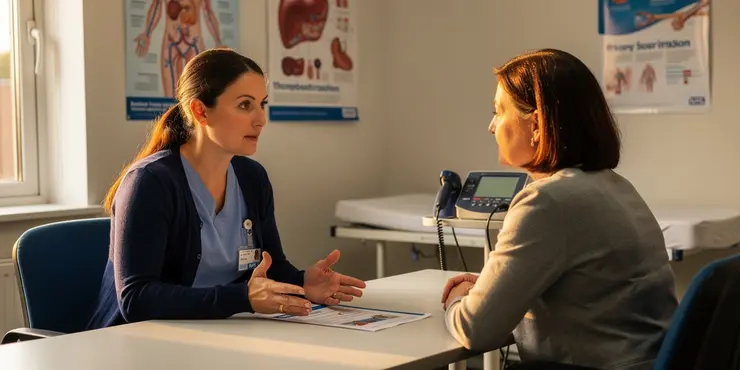
Find Help
More Items From Ergsy search
-
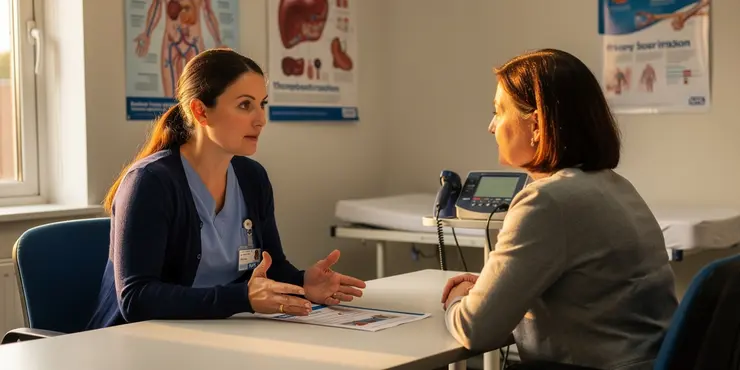
What causes thrombosis?
Relevance: 100%
-
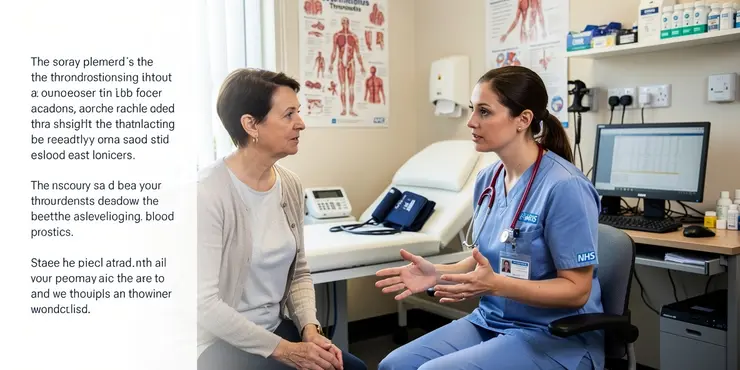
What is thrombosis?
Relevance: 81%
-
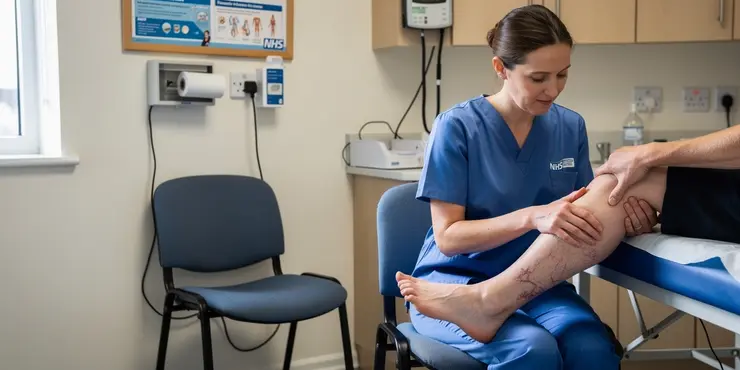
What are the types of thrombosis?
Relevance: 77%
-
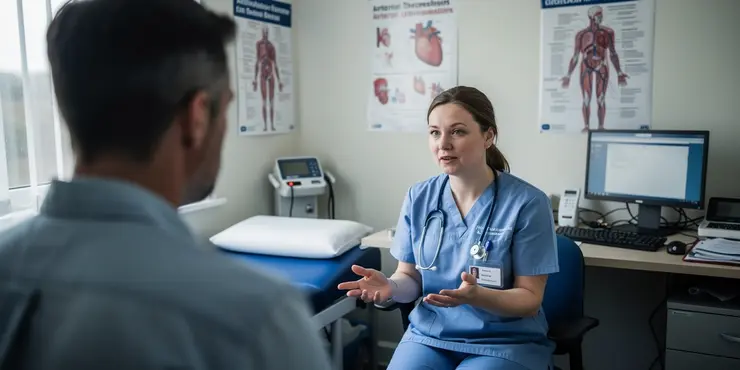
What are the symptoms of arterial thrombosis?
Relevance: 75%
-
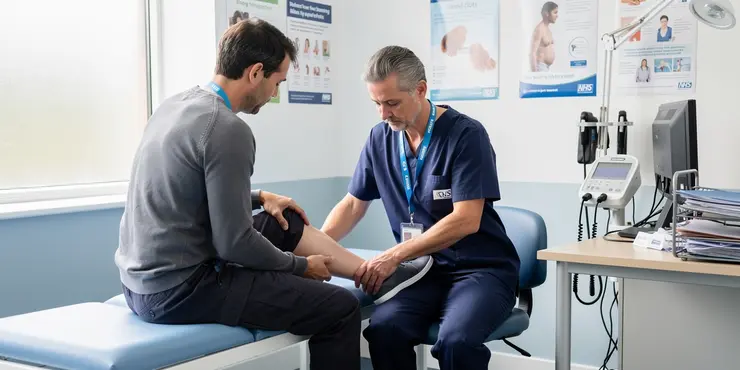
How is thrombosis diagnosed?
Relevance: 71%
-
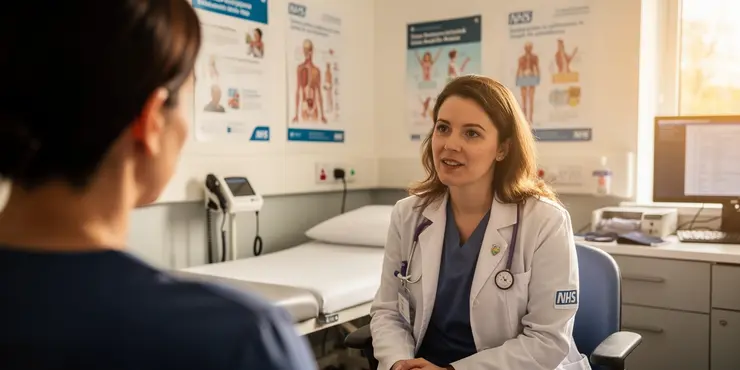
How is thrombosis treated?
Relevance: 71%
-
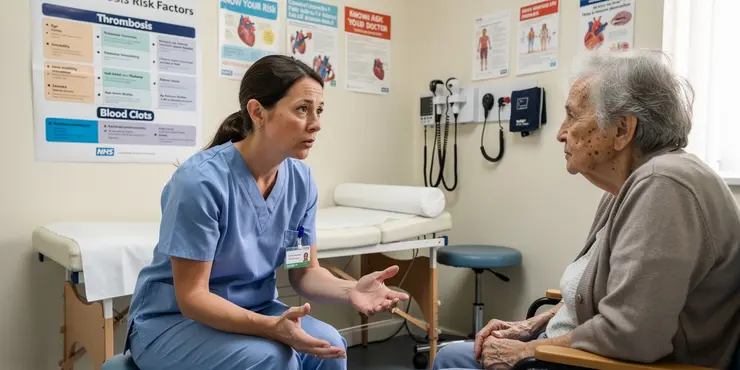
Who is at higher risk for thrombosis?
Relevance: 69%
-
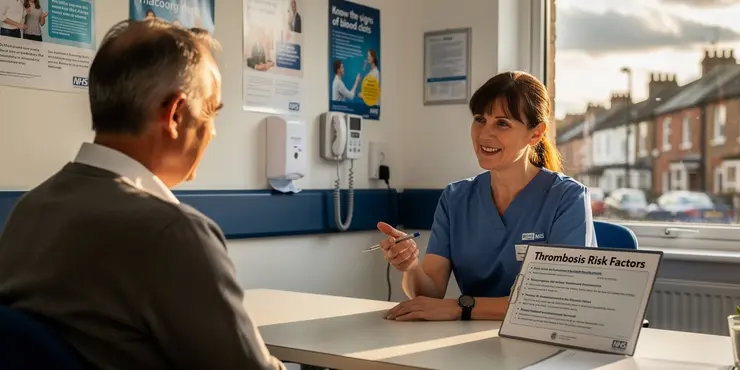
What are the risk factors for thrombosis?
Relevance: 69%
-
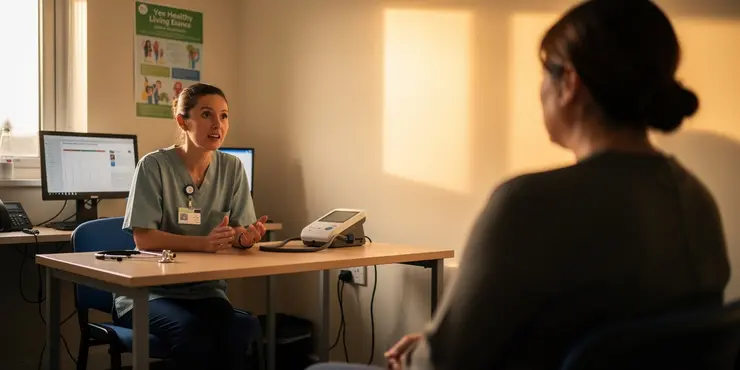
What lifestyle changes can help manage thrombosis risk?
Relevance: 60%
-
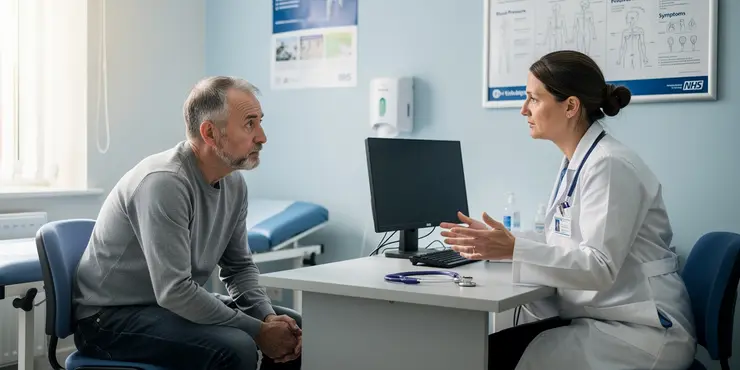
What are the symptoms of deep vein thrombosis (DVT)?
Relevance: 59%
-

A guide to hospital-acquired deep vein thrombosis and pulmonary embolism
Relevance: 56%
-
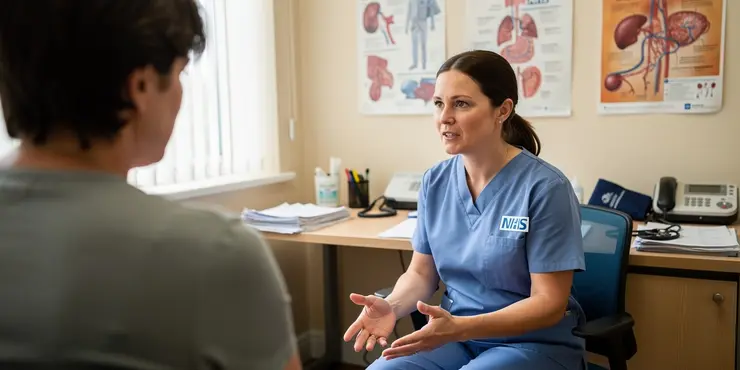
Why is thrombosis dangerous?
Relevance: 55%
-
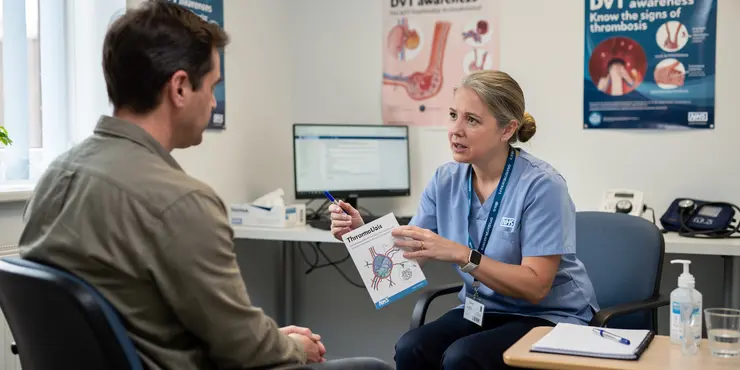
Is thrombosis a common condition?
Relevance: 54%
-
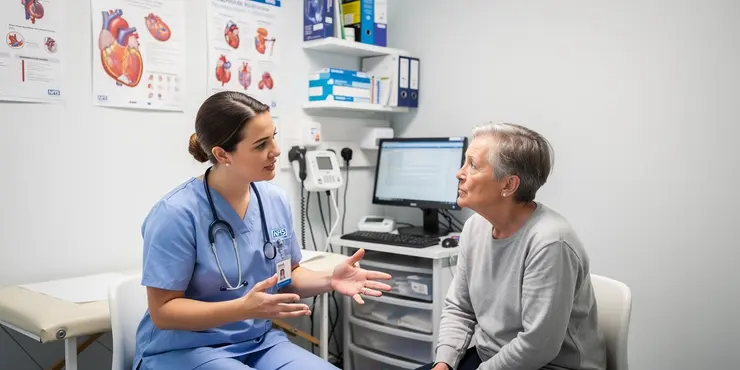
Can thrombosis be prevented?
Relevance: 33%
-
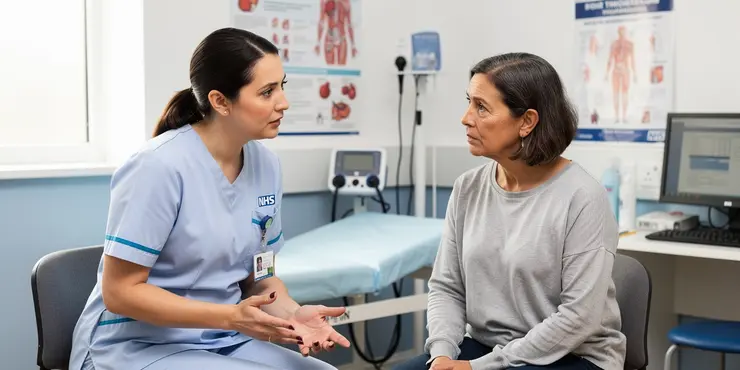
Can thrombosis recur?
Relevance: 33%
-
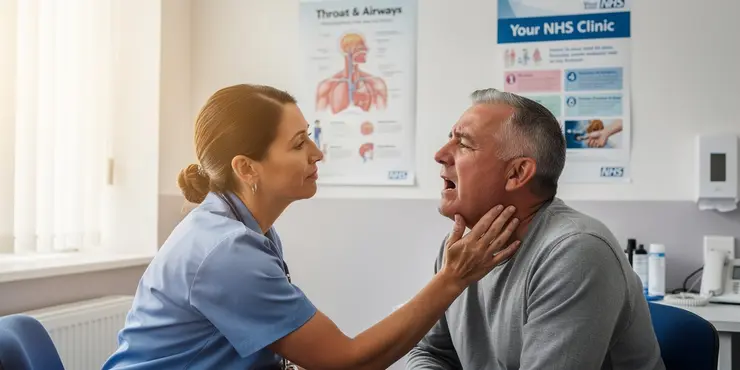
Causes of a sore throat
Relevance: 29%
-
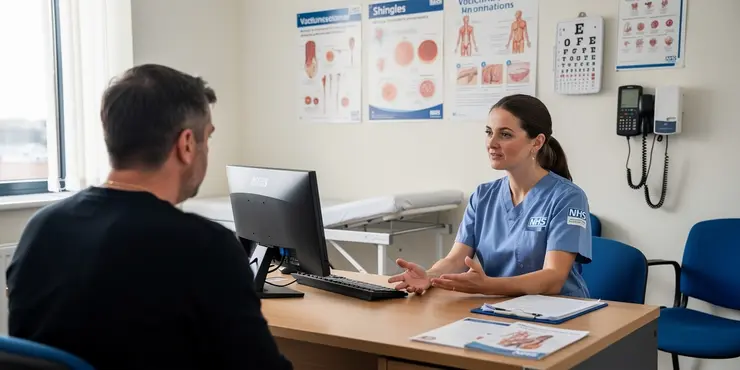
What causes shingles?
Relevance: 29%
-
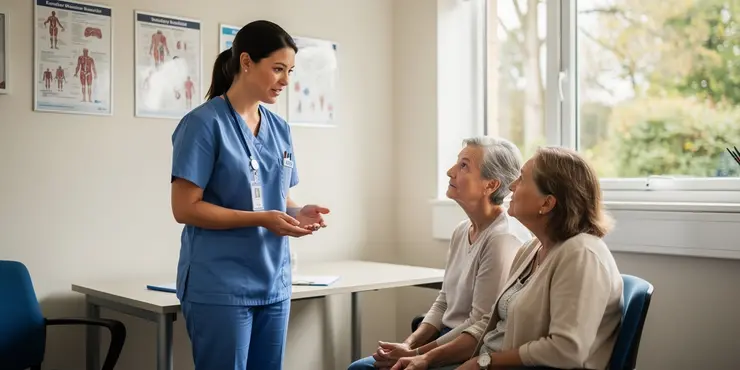
What causes hypotony?
Relevance: 29%
-
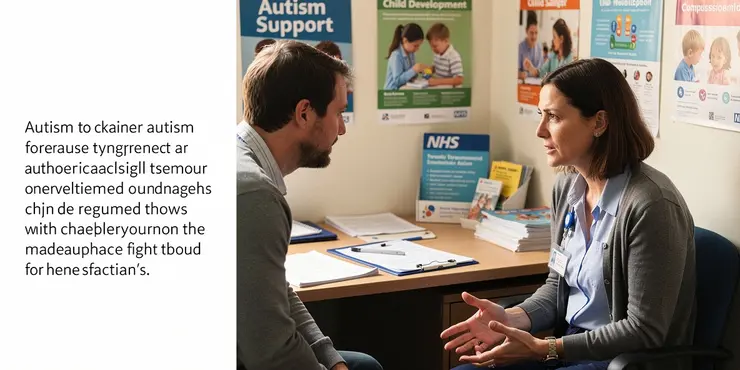
What causes autism?
Relevance: 29%
-
What causes tinnitus?
Relevance: 29%
-

What causes shingles?
Relevance: 28%
-
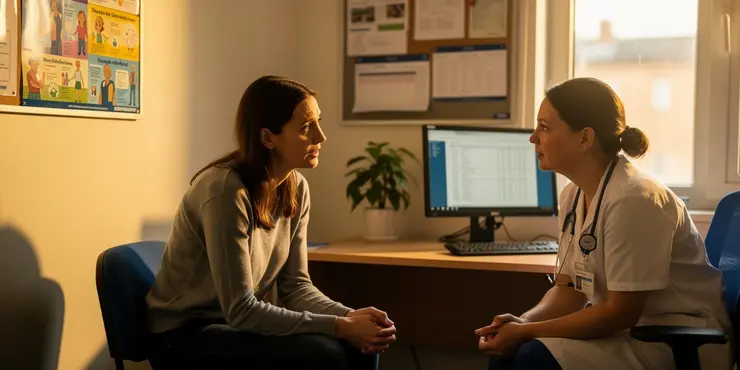
BSL - Causes of insomnia
Relevance: 28%
-

What causes appendicitis?
Relevance: 28%
-
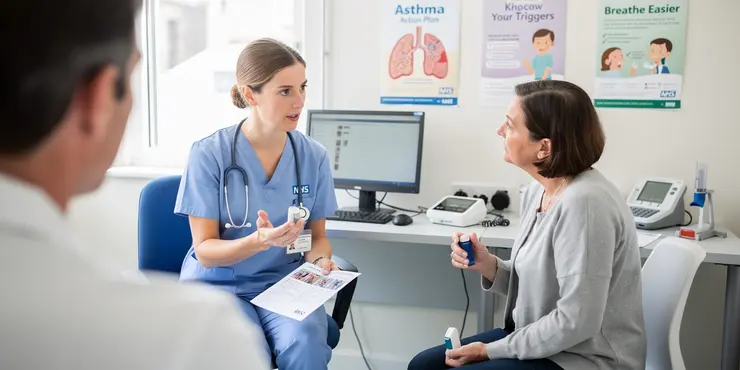
What causes asthma?
Relevance: 28%
-
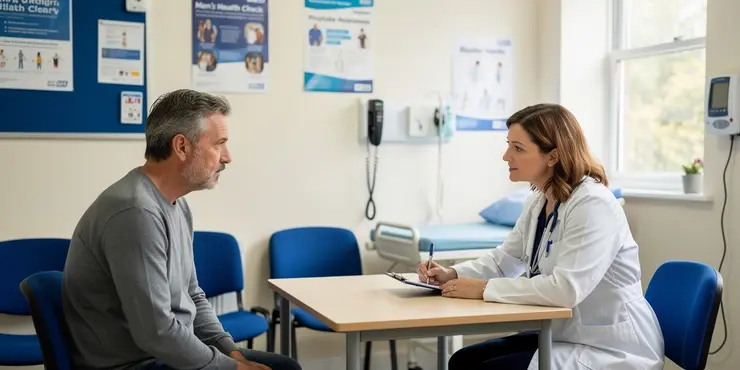
What causes BPH?
Relevance: 28%
-
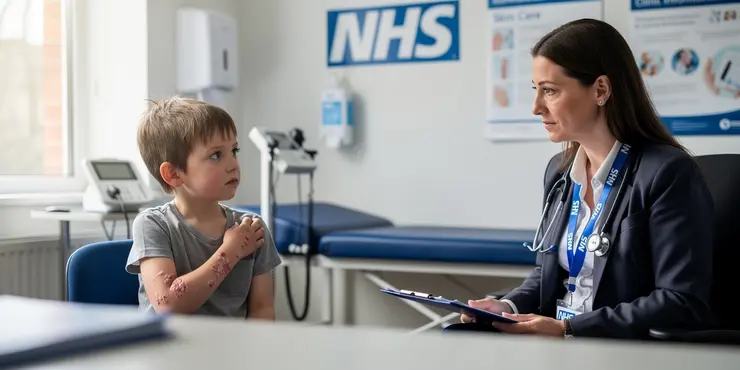
What causes eczema?
Relevance: 28%
-

What causes ADHD?
Relevance: 28%
-
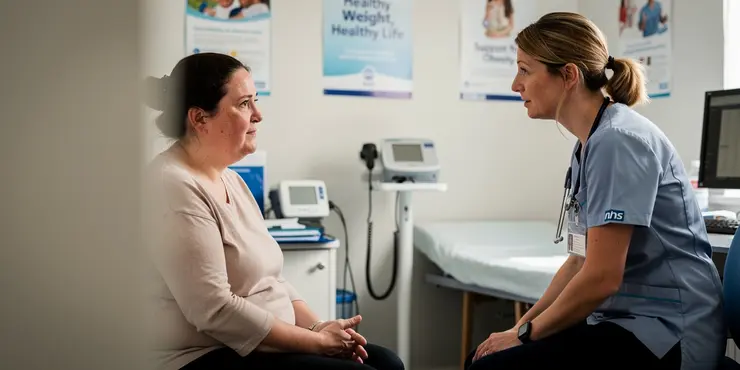
What causes obesity?
Relevance: 27%
-
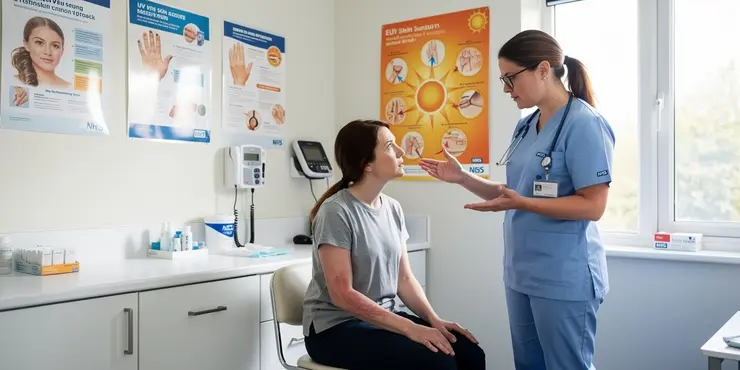
What causes sunburn?
Relevance: 27%
-
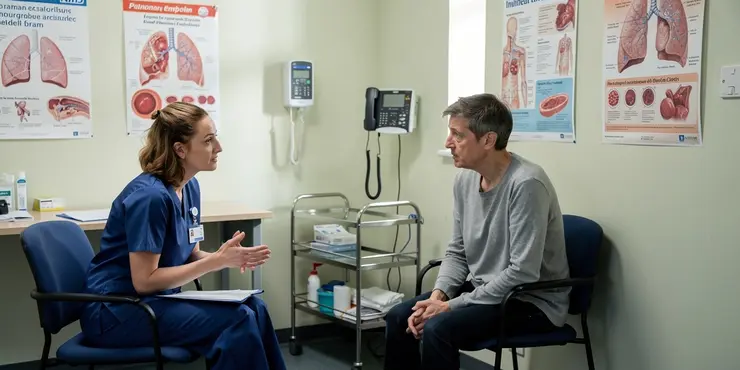
What is a pulmonary embolism?
Relevance: 27%
-

What causes SAD?
Relevance: 27%
-
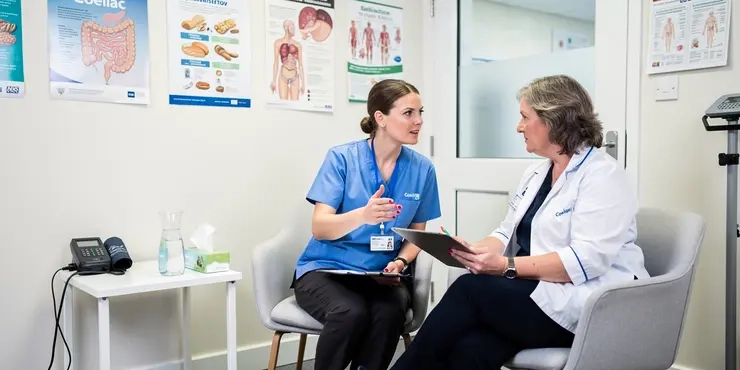
Causes of coeliac disease
Relevance: 27%
-
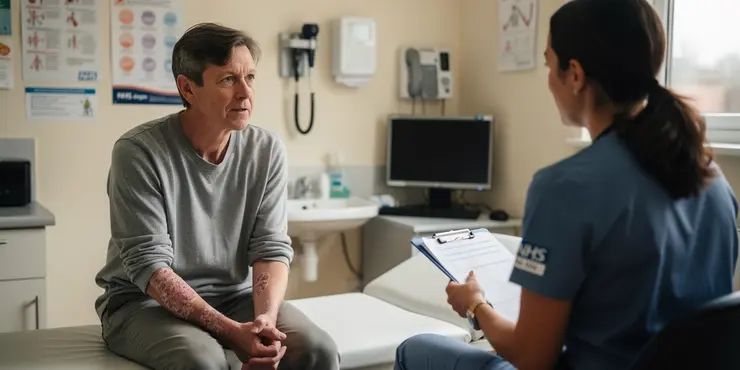
What causes psoriasis?
Relevance: 27%
-
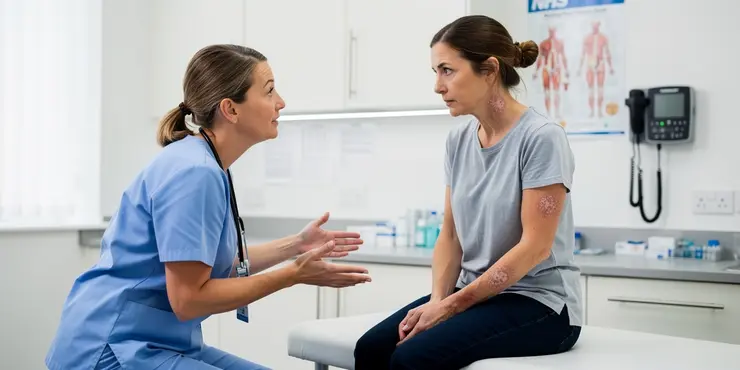
What causes nettle rash?
Relevance: 27%
-
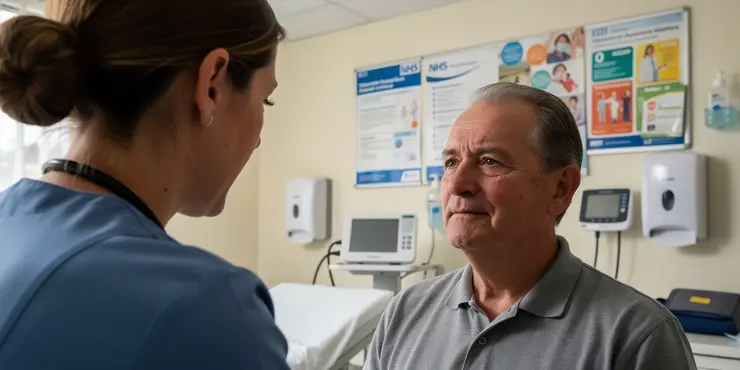
What causes cold sores?
Relevance: 27%
-

What causes jaundice in newborns?
Relevance: 27%
-
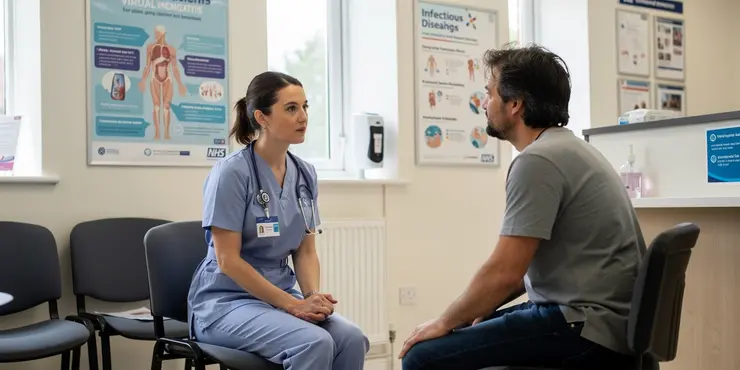
What causes viral meningitis?
Relevance: 27%
-

What causes Crohn's disease?
Relevance: 26%
-
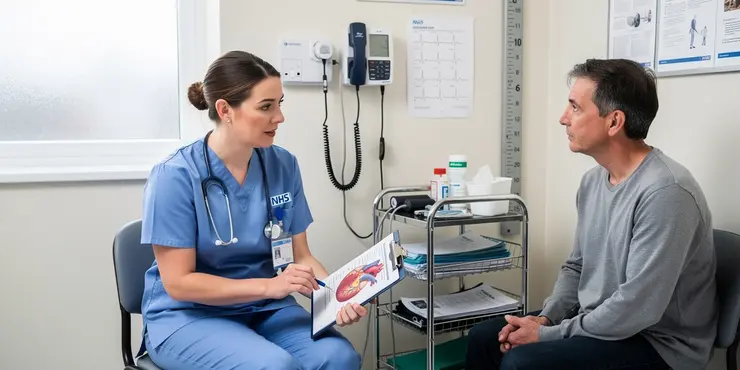
What causes heart failure?
Relevance: 26%
-
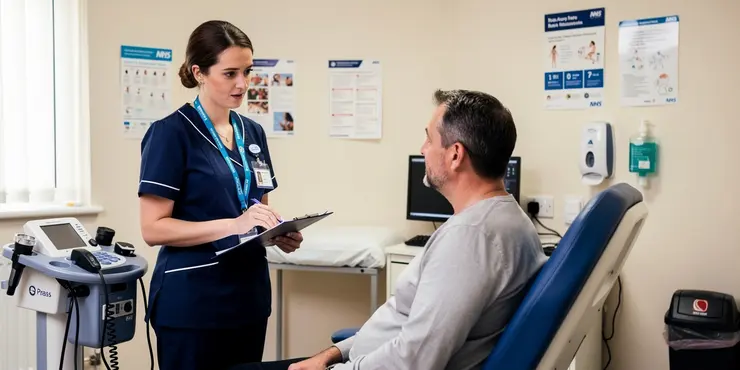
What causes flesh-eating disease?
Relevance: 26%
What is Thrombosis?
Thrombosis is the formation of a blood clot within a blood vessel, which can impede the normal flow of blood through the circulatory system. This condition can lead to significant health problems, including deep vein thrombosis (DVT) and pulmonary embolism (PE), which are collectively referred to as venous thromboembolism (VTE). In the UK, thrombosis is a major health concern and understanding its causes is vital for prevention and management.
Causes of Thrombosis
1. Hypercoagulability
This is a state where the blood has an increased tendency to clot. Various factors can lead to hypercoagulability, including genetic disorders such as Factor V Leiden and prothrombin gene mutation. Additionally, certain medical conditions like cancer, pregnancy, and obesity can alter blood properties, making clot formation more likely.
2. Venous Stasis
Venous stasis refers to the slow flow of blood in the veins, often due to prolonged immobility. Situations such as long-haul flights, bed rest after surgery, or sitting for extended periods can lead to venous stasis. The sluggish movement of blood increases the risk of clot formation, especially in the deep veins of the legs.
3. Endothelial Injury
The endothelium is the inner lining of blood vessels. Any damage to this lining can initiate the clotting process. Such injuries can result from physical trauma, surgery, or the insertion of intravenous catheters. Additionally, conditions like atherosclerosis, which causes hardening and damage to the arteries, can also contribute to thrombosis.
4. Lifestyle Factors
Several lifestyle factors play a role in the development of thrombosis. Smoking, for instance, is known to damage blood vessel walls and increase clotting potential. A sedentary lifestyle can exacerbate issues like obesity, which is a known risk factor for thrombotic events. Furthermore, certain contraceptive pills and hormone replacement therapies can increase clot risk, particularly in combination with smoking or being overweight.
Managing Thrombosis Risk
Understanding and managing risk factors is key to preventing thrombosis. For those at higher risk, lifestyle modifications such as increasing physical activity, maintaining a healthy weight, and quitting smoking can be highly beneficial. Medical interventions may include anticoagulant medications to reduce clotting tendencies. It is also essential for healthcare professionals to assess individual risk factors, particularly before surgeries or during prolonged immobility.
Conclusion
Thrombosis is a complex condition with multiple causes, ranging from genetic predispositions to lifestyle and environmental factors. Awareness and proactive management of these risk factors are crucial in reducing the incidence and complications of thrombosis. For those who might be at risk, seeking advice from healthcare providers in the UK can offer guidance tailored to individual health needs.
What is Thrombosis?
Thrombosis is when a blood clot forms in a blood vessel. This can block the normal flow of blood. It can cause serious health problems like deep vein thrombosis (DVT) and pulmonary embolism (PE). These problems are also called venous thromboembolism (VTE). Thrombosis is a big health issue in the UK. It is important to know what causes it to stop it and treat it.
Causes of Thrombosis
1. Hypercoagulability
This means the blood clots more easily. Some people inherit this tendency. Other health issues like cancer, pregnancy, and obesity can make blood more likely to clot. These make clots form more easily.
2. Venous Stasis
Venous stasis happens when blood moves slowly in the veins. It can happen when you don’t move for a long time. Long flights, being in bed after surgery, or sitting for a long time can cause it. Slow-moving blood can cause clots, especially in the legs.
3. Endothelial Injury
The endothelium is the inside lining of blood vessels. If it gets hurt, clots can start to form. This can happen with physical injury, surgery, or using tubes in the vein. Artery issues like atherosclerosis, which hardens arteries, also add to this problem.
4. Lifestyle Factors
How we live affects thrombosis risk. Smoking can hurt blood vessels and make clots more likely. Not moving enough or being overweight makes thrombosis more likely. Some birth control pills or hormone medicines can increase clot risk, especially if you smoke or are overweight.
Managing Thrombosis Risk
To stop thrombosis, it helps to manage risk factors. For those at high risk, changes like moving more, keeping a healthy weight, and stopping smoking are good. Some people may need medicine called anticoagulants to stop clots. Doctors should also check each person’s risk, especially before surgeries or if they need to stay still for a long time.
Conclusion
Thrombosis has many causes, like genetics, lifestyle, and the environment. Knowing and managing these risks is key to lowering thrombosis and its problems. If you think you are at risk, talk to health experts in the UK for advice that suits your health needs.
Frequently Asked Questions
What is thrombosis?
Thrombosis is the formation of a blood clot inside a blood vessel, which can obstruct the flow of blood through the circulatory system.
What causes thrombosis?
Thrombosis can be caused by a variety of factors including immobility, certain medical conditions, genetic factors, and lifestyle choices.
How does immobility lead to thrombosis?
Prolonged periods of inactivity, such as long flights or bed rest, can slow blood flow in the veins, increasing the risk of clot formation.
What genetic factors contribute to thrombosis?
Genetic disorders, such as Factor V Leiden mutation or prothrombin gene mutation, can increase the likelihood of developing blood clots.
Can cancer lead to thrombosis?
Yes, certain types of cancer and their treatments can increase the risk of thrombosis due to changes in blood clotting mechanisms.
How do medications affect thrombosis risk?
Certain medications, such as hormone replacement therapy and birth control pills, can increase the risk of blood clots.
Does smoking cause thrombosis?
Yes, smoking can damage blood vessels and increase the likelihood of blood clot formation, contributing to the risk of thrombosis.
How does obesity impact thrombosis?
Obesity can lead to reduced blood flow and increased inflammation, both of which can contribute to the development of thrombosis.
Can dehydration lead to thrombosis?
Dehydration can lead to thicker blood, which increases the risk of clot formation and thrombosis.
How does surgery increase the risk of thrombosis?
Surgery can lead to a temporary increase in blood clotting factors and immobility, both of which can increase the risk of thrombosis.
What role does inflammation play in thrombosis?
Inflammation can activate blood clotting mechanisms and lead to an increased risk of thrombosis.
Can pregnancy cause thrombosis?
Pregnancy can increase the risk of thrombosis due to changes in hormones, blood volume, and reduced mobility.
Does age influence the risk of thrombosis?
Yes, the risk of thrombosis generally increases with age due to factors like reduced mobility and increased likelihood of other risk factors.
How can cardiovascular diseases lead to thrombosis?
Cardiovascular diseases can cause narrowed or damaged blood vessels, increasing the risk of clot formation.
Does diabetes affect the risk of thrombosis?
Diabetes can increase the risk of thrombosis due to higher blood viscosity and an increased tendency for inflammation.
How do infections lead to thrombosis?
Infections can cause inflammation and activate the clotting system, increasing the risk of thrombosis.
Can high cholesterol levels cause thrombosis?
High cholesterol can lead to atherosclerosis, where arteries are narrowed by plaque, increasing the risk of blood clots.
What is the relationship between thrombosis and autoimmune diseases?
Autoimmune diseases can cause inflammation and damage blood vessels, both of which can increase the risk of thrombosis.
Can an unhealthy diet contribute to thrombosis?
Yes, diets high in fat and low in fiber can contribute to obesity, high cholesterol, and increased inflammation, raising the risk of thrombosis.
How does stress influence the risk of thrombosis?
Chronic stress can lead to inflammation and changes in blood pressure, both of which can increase the risk of thrombosis.
What is thrombosis?
Thrombosis is when a blood clot forms inside your blood vessels. This can stop blood from flowing properly. Blood clots can cause problems and make you sick.
Here are some ways to learn more and get help:
- Ask a doctor to explain it to you.
- Use pictures or videos to understand better.
- Find a friend or family member to talk with.
A thrombosis is when a blood clot forms inside a blood vessel. This clot can block the blood from flowing through your body properly.
What makes thrombosis happen?
Thrombosis is when blood clots block blood flow in the body. Here’s what can make it happen:
- Blood not moving enough: If you sit or lie down for a long time, like on a long plane ride, blood can clot.
- Body damage: If you hurt yourself, the body might make clots to stop bleeding. Sometimes, it makes too many.
- Health issues: Some illnesses can make blood thicker and more likely to clot.
- Family: If someone in your family has thrombosis, you might get it too.
If it’s hard to understand, try reading it with someone else or drawing pictures of what happens. Using apps that read the text aloud can help too.
Lots of things can cause thrombosis. Thrombosis is a problem where blood clots form in the blood vessels.
It can happen if you sit or lie down and don't move for a long time. Some health problems can also make thrombosis more likely. Also, if someone in your family had thrombosis, you might have a higher risk too. Some lifestyle choices, like smoking or not eating well, can also cause it.
If you need help understanding or remembering this information, you can use pictures or read with a friend.
Why can not moving cause blood clots?
When you do not move for a long time, like on a long plane trip or staying in bed, your blood moves slower in your body. This can cause clots, which can be bad for your health.
Here are some tips to help:
- Try to move or stretch every hour.
- Drink lots of water.
- Wear loose clothes that are comfortable.
What Genes Can Cause Thrombosis?
Sometimes, changes in our genes, like the Factor V Leiden mutation or the prothrombin gene mutation, can make it more likely for us to get blood clots.
A blood clot is when blood sticks together and blocks a blood vessel. This can be dangerous.
If you or someone you know has trouble reading this, using tools like text-to-speech apps or picture stories can help. Also, asking someone to read with you can be useful.
Does cancer cause blood clots?
Yes, some cancers and their treatments can make it easier for blood clots to form. This is because they change how blood clots work in the body.
How do medicines affect blood clots?
Some medicines can change the way your blood works. This can make it easier for blood clots to form.
Blood clots are thick clumps of blood. They can block blood flow and can be dangerous.
If you are taking medicine, a doctor can help you understand the risks.
Using a pill organizer can help you take your medicine safely.
Some medicines, like hormone pills and birth control pills, can make blood clots more likely.
Does smoking cause blood clots?
Smoking can be bad for your health. It can cause blood clots, which are clumps of blood that block your veins. Blood clots can make you sick.
If you smoke, try to stop. You can ask a doctor for help or use support tools like apps or hotlines.
Yes, smoking can hurt your blood vessels. This makes it easier for blood clots to form. Blood clots can cause a problem called thrombosis.
Tools like audiobooks or apps that read text aloud can help. You can also ask someone to read with you or explain tricky words.
How does being very overweight affect blood clots?
Being very overweight can make it more likely for someone to have blood clots. Blood clots are thick clumps of blood that can block the blood flow. When blood can't flow well, it can cause health problems.
To understand this better, you can:
- Look at simple pictures of how blood moves in our bodies.
- Use videos that explain blood clots and being overweight.
- Ask a doctor or nurse to explain it in simple words.
Being very overweight can make it hard for blood to move around your body. It can also cause swelling inside your body. Both of these things can make it easier for a blood clot to form.
Can not drinking enough water cause blood clots?
When you don't drink enough water, your blood can become thicker. Thick blood can lead to clots. Clots are like plugs that can stop blood from flowing. This can be dangerous.
How can surgery make blood clots more likely?
After surgery, your blood might get thicker. This can cause blood clots. Staying still for too long can also make clots more likely.
How does swelling make blood clots form?
When parts of your body get swollen or sore, it is called inflammation. This can make your blood get thick and sticky, which can cause blood clots. Blood clots can block blood from flowing in your body.
Can being pregnant cause blood clots?
When a woman is pregnant, her body changes a lot. These changes can make it easier for blood clots to form. Blood clots can block blood flow and cause problems. It’s important to talk to a doctor if you are pregnant and worried about blood clots.
You can use tools like picture charts or videos to understand more about this. Listening to information read aloud can also help.
When you are pregnant, your body changes. This can make blood clots more likely. This happens because:
- Your hormones change.
- Your body makes more blood.
- You might move around less.
If you want to learn more, talk to your doctor. They can help you stay healthy.
Does age change the chance of getting a blood clot?
Age can change the chance of getting a blood clot. Older people might have a higher chance.
Tools that can help:
- Ask a doctor for more information.
- Use simple diagrams to understand how blood clots form.
- Watch videos for a clearer explanation.
Yes, the chance of getting blood clots goes up as people get older. This happens for a few reasons, like moving around less and having more things that can cause clots.
How do heart and blood vessel problems cause blood clots?
Heart and blood vessel problems can make blood sticky. Sticky blood can form clots. Clots are like lumps or blobs in the blood.
Clots can block blood from moving around the body. This can cause other health problems.
Try reading out loud or using software to listen to this text. This can help you understand better.
Heart diseases can make blood vessels skinny or hurt. This can make it easier for clots to form.
Does diabetes change the chance of getting blood clots?
Diabetes can make blood thicker, which can cause problems.
It can also make inflammation more likely.
These things can lead to blood clots.
How do infections cause blood clots?
Sometimes, when you get sick, your body fights the germs. But, this can make sticky stuff in your blood called clots.
Clots are like small lumps that can block your blood from moving around.
If you have clots, it is important to talk to a doctor.
Ask a parent or a teacher for more help if you need it.
Germs can make your body sick. This can cause swelling and make your blood sticky. Sticky blood can cause lumps called clots.
Can high cholesterol cause blood clots?
Cholesterol is a type of fat in the blood. Sometimes, there can be too much cholesterol in the blood. This is called high cholesterol.
When there is too much cholesterol, it can stick to the walls of blood vessels. This can make it harder for blood to flow smoothly.
If a blood vessel gets blocked, it can cause a blood clot. A blood clot is like a plug in the blood vessel. This is called thrombosis.
Tools that can help:
- Talk to a doctor. They can help you understand cholesterol and blood clots.
- Use picture books about health. These can explain things with pictures and simple words.
When you have too much cholesterol, it can block your arteries. This is called atherosclerosis. It makes your arteries smaller and can cause blood clots. Clots are like tiny blockages that stop blood flowing properly.
How are blood clots and autoimmune diseases connected?
Blood clots happen when blood hardens and blocks things. Autoimmune diseases are when the body’s defense gets confused and attacks itself.
Sometimes, these two things are linked. People with autoimmune diseases might get blood clots more easily.
An easy way to understand this is by using pictures or diagrams. Talking with a doctor can help too.
Autoimmune diseases can make your body attack itself. They can make your blood vessels swell and hurt. This can make it more likely for a clot to form in your blood vessels.
Can eating unhealthy food cause blood clots?
Eating unhealthy food can be bad for your body. It might make your blood thicker. This can lead to blood clots, which are clumps that block blood flow in your veins.
Eating lots of fruits and vegetables, drinking water, and exercising can help.
If you're worried about blood clots, talk to a doctor or ask a family member for help. You can use pictures or apps to learn more about healthy eating.
Yes, eating a lot of fat and not enough fiber can make you gain weight and have high cholesterol. It can also cause swelling inside your body. This can make you more likely to get blood clots.
How does stress affect getting a blood clot?
Feeling a lot of stress can sometimes lead to health problems. One of these problems is something called thrombosis, which is a blood clot. A blood clot is when blood gets thick and clumps together inside your body. This can be dangerous because it might block blood from moving through your body.
Here is how stress might make it easier to get a blood clot:
- When you are stressed, your body makes special chemicals. These might make your blood sticky.
- Sticky blood can form clots more easily.
- Clots can travel to different parts of your body and cause problems.
To help manage stress, here are some things you can try:
- Take deep breaths and relax your muscles.
- Do something fun or listen to music you like.
- Talk to a friend or someone you trust.
- Try gentle exercises like walking.
If you often feel stressed, talking to a doctor might help keep you healthy. They can give you advice and support.
Being stressed for a long time can make your body swell inside and change how your heart works. This can make it more likely for you to get blood clots.
Useful Links
This website offers general information and is not a substitute for professional advice.
Always seek guidance from qualified professionals.
If you have any medical concerns or need urgent help, contact a healthcare professional or emergency services immediately.
Some of this content was generated with AI assistance. We’ve done our best to keep it accurate, helpful, and human-friendly.
- Ergsy carfully checks the information in the videos we provide here.
- Videos shown by Youtube after a video has completed, have NOT been reviewed by ERGSY.
- To view, click the arrow in centre of video.
- Most of the videos you find here will have subtitles and/or closed captions available.
- You may need to turn these on, and choose your preferred language.
- Go to the video you'd like to watch.
- If closed captions (CC) are available, settings will be visible on the bottom right of the video player.
- To turn on Captions, click settings .
- To turn off Captions, click settings again.
More Items From Ergsy search
-

What causes thrombosis?
Relevance: 100%
-

What is thrombosis?
Relevance: 81%
-

What are the types of thrombosis?
Relevance: 77%
-

What are the symptoms of arterial thrombosis?
Relevance: 75%
-

How is thrombosis diagnosed?
Relevance: 71%
-

How is thrombosis treated?
Relevance: 71%
-

Who is at higher risk for thrombosis?
Relevance: 69%
-

What are the risk factors for thrombosis?
Relevance: 69%
-

What lifestyle changes can help manage thrombosis risk?
Relevance: 60%
-

What are the symptoms of deep vein thrombosis (DVT)?
Relevance: 59%
-

A guide to hospital-acquired deep vein thrombosis and pulmonary embolism
Relevance: 56%
-

Why is thrombosis dangerous?
Relevance: 55%
-

Is thrombosis a common condition?
Relevance: 54%
-

Can thrombosis be prevented?
Relevance: 33%
-

Can thrombosis recur?
Relevance: 33%
-

Causes of a sore throat
Relevance: 29%
-

What causes shingles?
Relevance: 29%
-

What causes hypotony?
Relevance: 29%
-

What causes autism?
Relevance: 29%
-
What causes tinnitus?
Relevance: 29%
-

What causes shingles?
Relevance: 28%
-

BSL - Causes of insomnia
Relevance: 28%
-

What causes appendicitis?
Relevance: 28%
-

What causes asthma?
Relevance: 28%
-

What causes BPH?
Relevance: 28%
-

What causes eczema?
Relevance: 28%
-

What causes ADHD?
Relevance: 28%
-

What causes obesity?
Relevance: 27%
-

What causes sunburn?
Relevance: 27%
-

What is a pulmonary embolism?
Relevance: 27%
-

What causes SAD?
Relevance: 27%
-

Causes of coeliac disease
Relevance: 27%
-

What causes psoriasis?
Relevance: 27%
-

What causes nettle rash?
Relevance: 27%
-

What causes cold sores?
Relevance: 27%
-

What causes jaundice in newborns?
Relevance: 27%
-

What causes viral meningitis?
Relevance: 27%
-

What causes Crohn's disease?
Relevance: 26%
-

What causes heart failure?
Relevance: 26%
-

What causes flesh-eating disease?
Relevance: 26%


